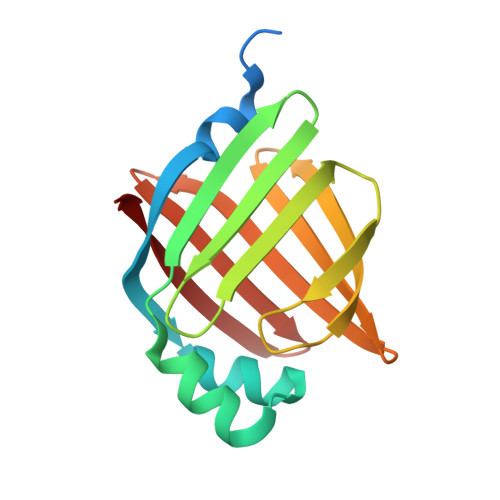Exploration of Fragment Binding Poses Leading to Efficient Discovery of Highly Potent and Orally Effective Inhibitors of FABP4 for Anti-inflammation.
Su, H., Zou, Y., Chen, G., Dou, H., Xie, H., Yuan, X., Zhang, X., Zhang, N., Li, M., Xu, Y.(2020) J Med Chem 63: 4090-4106
- PubMed: 32202425
- DOI: https://doi.org/10.1021/acs.jmedchem.9b02107
- Primary Citation of Related Structures:
6LJS, 6LJT, 6LJU, 6LJV, 6LJW, 6LJX - PubMed Abstract:
Fatty-acid binding protein 4 (FABP4) is a promising therapeutic target for immunometabolic diseases, while its potential for systemic inflammatory response syndrome treatment has not been explored. Here, a series of 2-(phenylamino)benzoic acids as novel and potent FABP4 inhibitors are rationally designed based on an interesting fragment that adopts multiple binding poses within FABP4. A fusion of these binding poses leads to the design of compound 3 with an ∼460-fold improvement in binding affinity compared to the initial fragment. A subsequent structure-aided optimization upon 3 results in a promising lead ( 17 ) with the highest binding affinity among all the inhibitors, exerting a significant anti-inflammatory effect in cells and effectively attenuating a systemic inflammatory damage in mice. Our work therefore presents a good example of lead compound discovery derived from the multiple binding poses of a fragment and provides a candidate for development of drugs against inflammation-related diseases.
Organizational Affiliation:
CAS Key Laboratory of Receptor Research, Drug Discovery and Design Center, Shanghai Institute of Materia Medica, Chinese Academy of Sciences, Shanghai 201203, China.




















